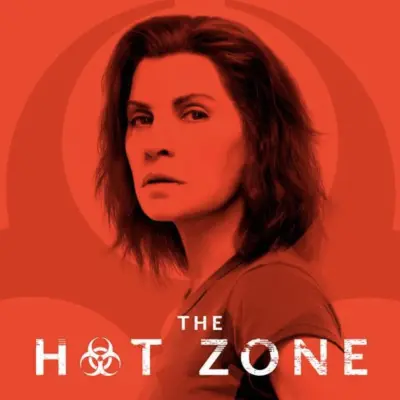Daniel Dae Kim and Tony Goldwyn are compelling to watch in Nat Geo's otherwise drawn out and dull The Hot Zone: Anthrax
-

"After tackling the Ebola crisis in its first season, Nat Geo’s anthology drama The Hot Zone returns to reexamine the investigation behind 2001’s Anthrax mailings, which killed five people and infected several more," says Saloni Gajjar. "The six-parter offers a cut-and-dried look at the heinous crimes which took place in the weeks following 9/11. But the narrow approach is drawn out and dull, despite captivating performances from lead duo Daniel Dae Kim and Tony Goldwyn. The Hot Zone: Anthrax makes an effort to touch on a monumental incident that usually gets overshadowed in 9/11 coverage, but it still doesn’t offer a lot of new information. This is a linear retelling of the case through the eyes of FBI agent Matthew Ryker (Kim), an amalgamation of the agents who actually investigated the letters. No time is spent fleshing out the lead character beyond his passion for finding the culprit. Dressed only in sharp suits and a perpetual furrowed brow, Kim can only do so much to save a relatively one-note script."
ALSO:
- The Hot Zone: Anthrax is about the fear of the infection at all: "In fact, the disease itself feels cast to the side," says Kristen Lopez. "Sure, we see a man fall ill with it — manifested onscreen as a lack of consciousness and sweating — and other victims are stricken with large lesions, but the sense of terror just isn’t present. What is present is a lot of government types telling people how scared they should be, especially considering the events happening so close to 9/11, and that’s where the more complicated elements of telling this story pop up, or are discarded entirely."
- The Hot Zone: Anthrax straddles the line as a piece of didactic entertainment and full sail cable TV thriller: The six-episode series is able to recapture "the psychological disposition of a post-9/11 America and submerging the viewer within a whodunnit format," says Katherine Smith. "Lost and Hawaii Five-0’s Daniel Dae Kim anchors the series as Special Agent Matthew Ryker, a lead investigator in the hunt to stop anthrax attacks, with Dylan Baker of The Americans and Homeland fame playing his boss, Ed Copak. The choice to ground this season’s point of view largely through the lens of law enforcement has its advantages. The ability of deputized characters to transverse rooms and labs with authority also grants access for the audience to come alongside them and glean otherwise unknowable details. However, there are also notable drawbacks."
- How Harry Hamlin ended up playing Tom Brokaw: "I just got a call: 'You have an offer to play Tom Brokaw in The Hot Zone,'" says Hamlin. "I said, 'Really? Is it possible to even play Tom Brokaw?' I said to my agents that I had to consider it, because it felt like I would be walking a tightrope without a net trying to do something like that. He’s someone I respect so much and he’s such an icon. I said, 'Is it even possible to do this?' But I like doing things that are impossible, so I said yes." Hamlin adds: "It can’t really be anything but my own version of Tom Brokaw, because I’m not Tom Brokaw. I cannot become Tom Brokaw, but I can create an approximation, which I did. I mean, the dilemma that I had was, 'Do I just play him? Do I just be me? Do I have to be the best Harry I can be, and then pretend to be Tom Brokaw? Do I try to find whatever cadence I can access and get as close to a Tom Brokaw approximation as possible?'"
- Tony Goldwyn says the pandemic makes The Hot Zone: Anthrax feel close to home: "When we are frightened, we crave closure," he says. "If there’s a wrong done, we want to find the bad guy, we want to punish people. We self-justify and want to fulfill our image of ourselves as safe and secure and powerful."
- Daniel Dae Kim says playing an FBI agent carries special resonance: "It says a lot of positive things that when they think of (who can play) an FBI agent who is leading the charge against one of the most significant terrorist attacks on our soil, he looks like me," he says. "That's a testament to who we call an American, and what we consider an American to look like."
TOPICS: The Hot Zone, National Geographic, Daniel Dae Kim, Harry Hamlin, Tony Goldwyn
More The Hot Zone on Primetimer:- Daniel Dae Kim: I wouldn't have been cast as a lead on The Hot Zone: Anthrax 10 years ago
- Check out Daniel Dae Kim and Tony Goldwyn in the first look at The Hot Zone: Anthrax
- The Hot Zone: Anthrax unveils its trailer, gets a Nat Geo premiere date
- Enrico Colantoni to play Rudy Giuliani in The Hot Zone: Anthrax
